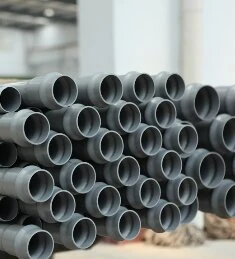Дек . 31, 2024 11:04 Back to list
Understanding CPVC Chemical Pipes and Their Applications in Industrial Settings
Understanding CPVC Chemical Pipes Features, Benefits, and Applications
Chlorinated Polyvinyl Chloride (CPVC) pipes are increasingly popular in various industries due to their remarkable properties and versatility, particularly in chemical handling applications. Unlike standard PVC, CPVC is treated with chlorine, which enhances its rigidity, heat resistance, and chemical tolerance. This article will explore the features, benefits, and applications of CPVC chemical pipes, elucidating their critical role in modern infrastructure and manufacturing processes.
Features of CPVC Chemical Pipes
One of the primary features of CPVC pipes is their superior resistance to corrosive chemicals. Unlike metal pipes, which can corrode over time when exposed to harsh environments, CPVC pipes are engineered to withstand a wide range of chemicals, including acids, alkalis, and salts. This characteristic significantly extends the lifespan of the piping system, reducing the need for frequent replacements and maintenance.
Additionally, CPVC pipes can handle higher temperatures compared to regular PVC. They can operate efficiently at temperatures up to 200°F (93°C), making them suitable for hot water applications and environments that require thermal resilience. This resistance to both heat and chemicals makes CPVC a preferred choice in industries such as pharmaceuticals, chemical manufacturing, and food processing.
Another defining feature of CPVC pipes is their smooth inner surface, which helps in minimizing friction loss during fluid transport. This property not only enhances flow efficiency but also reduces the energy required for pumping, leading to lower operational costs.
Benefits of CPVC Chemical Pipes
1. Cost-Effectiveness While the initial investment for CPVC pipes may be higher than traditional materials like unchlorinated PVC or metal, the long-term savings due to their durability and low maintenance requirements often outweigh the upfront costs. The longevity of CPVC systems can result in significant savings over time, particularly in large-scale operations.
2. Lightweight and Easy Installation CPVC pipes are lighter than metal piping systems, which simplifies transportation and installation. Their ease of handling allows for quicker installation times, reducing labor costs and downtime during project implementation.
cpvc chemical pipe

3. Environmental Resistance CPVC pipes do not rust or corrode, which is vital for maintaining the integrity of chemical systems. Additionally, they are resistant to scaling and biological growth, ensuring that the flow remains unobstructed and the water quality is maintained.
4. Safety CPVC pipes are non-toxic, making them an excellent choice for systems that deal with potable water and health-sensitive applications. Their chemical resistance also means that there is a lower risk of leaks that can lead to hazardous spills in industrial settings.
Applications of CPVC Chemical Pipes
CPVC pipes are extensively used across a variety of sectors. In the chemical industry, they are widely applied in the transportation of aggressive chemicals, including hydrochloric acid and sodium hydroxide. Their resistance to chemical erosion makes them ideal for chemical processing plants and laboratories.
In the pharmaceutical field, CPVC piping is used to transfer fluids safely, minimizing contamination risks and ensuring product integrity. Their ability to handle high temperatures also makes them suitable for steam applications in sterilization processes.
Water treatment facilities utilize CPVC pipes for their durability and resistance to chlorine, which is commonly used in water disinfection. Moreover, in construction, CPVC systems are employed for various plumbing applications, offering reliable solutions for both residential and commercial projects.
Conclusion
CPVC chemical pipes represent a significant advancement in piping technology. Their unique combination of chemical resistance, durability, and thermal stability makes them an essential component in many industrial applications. As industries continue to evolve and seek efficient, reliable, and safe solutions, CPVC pipes are likely to play a pivotal role in future innovations, contributing to the overall improvement of infrastructure and safety in fluid transport systems.
-
Durable PP Rigid Sheet: Lightweight, Chemical Resistant Solutions
NewsAug.21,2025
-
PVC Grey Sheet for Extraction: Chemical Resistant & Durable
NewsAug.19,2025
-
Durable PVC Pipe Fittings for Plumbing & Irrigation Needs
NewsAug.18,2025
-
HDPE Steel Belt Reinforced Spiral Corrugated Pipe | High Strength
NewsAug.17,2025
-
HDPE Pipe Fittings: Durable, Leak-Proof Solutions
NewsAug.16,2025
-
Premium CPVC Sheet: High-Temp & Chemical Resistant Solutions
NewsAug.15,2025

